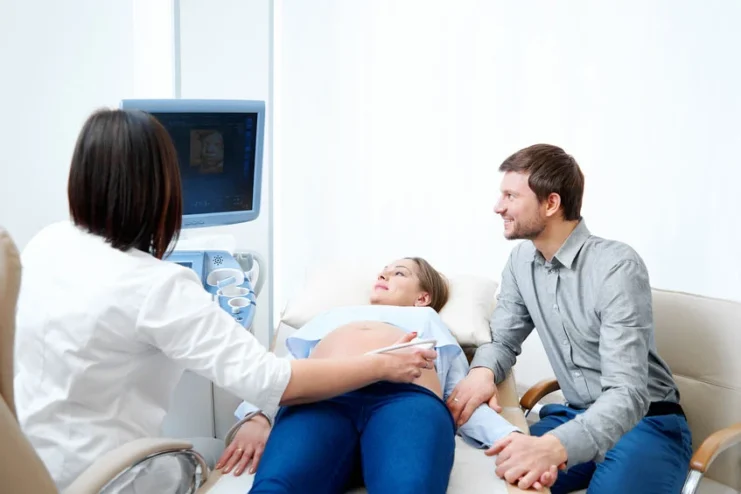In your 30s, understanding fertility becomes crucial as natural changes in the body affect reproductive potential. Fertility gradually declines in this decade, especially after 35, due to a decrease in both the quantity and quality of eggs. This decline is a normal part of aging but varies from person to person. Despite these changes, many individuals and couples in their 30s successfully conceive. It’s essential to be aware of these changes, as it allows for better planning and preparation for parenthood. Early awareness can lead to more informed decisions and proactive measures in your fecundity journey.
Impact The of Age on Fertility

Age is a significant factor in fertility, especially as you approach your late 30s. The chances of conceiving naturally decrease each year, and the risks associated with pregnancy, such as miscarriage and genetic abnormalities, increase with age. This decline in fertility is primarily due to a decrease in the number of available eggs and changes in reproductive hormones. By understanding the impact of age on fecundity, individuals and couples can make more informed decisions about their family planning. Seeking guidance from healthcare professionals such as Zora Health early can also help in addressing any age-related fertility concerns.
Healthy Lifestyle Choices for Improved Fertility
Adopting healthy lifestyle choices is a critical step in boosting fertility, especially in your 30s. This includes quitting smoking, as tobacco use is linked to decreased fertility and increased risks of miscarriage and ectopic pregnancy. Limiting alcohol consumption is also essential, as excessive drinking can lead to fecundity issues in both men and women. Additionally, reducing caffeine intake is recommended, as high levels of caffeine have been associated with fertility problems. Eating a balanced diet, staying hydrated, and maintaining a regular sleep schedule are also key in promoting reproductive health. These lifestyle adjustments can significantly improve your chances of conception and a healthy pregnancy.
The Role of Diet in Boosting Fertility
A balanced diet plays a critical role in enhancing fertility. Nutrients like folic acid, iron, zinc, and vitamins D and B12 are particularly important. For women, consuming a diet rich in fruits, vegetables, whole grains, lean proteins, and healthy fats can improve ovulation and overall reproductive health. For men, foods rich in antioxidants, like berries and leafy greens, can improve sperm quality. Avoiding processed foods, excessive sugar, and trans fats is also crucial. Understanding the impact of diet on fecundity can guide you to make beneficial dietary changes, enhancing your chances of a successful conception.
Managing Stress for Better Fertility

Stress can negatively impact fertility, making its management vital in your 30s. High stress levels can disrupt menstrual cycles and ovulation in women and affect sperm production in men. Techniques like mindfulness, yoga, and meditation can be effective in reducing stress. Seeking support through counseling or support groups can also be beneficial. It’s important to identify stressors in your life and adopt healthy coping mechanisms. Balancing work and personal life, ensuring adequate rest, and nurturing relationships can contribute to a more relaxed state of mind, thereby aiding in your fecundity journey.
Importance of Regular Exercise
Regular exercise is beneficial for fertility. It helps in maintaining hormonal balance, reducing stress, and improving overall health. However, moderation is key. Overly intense exercise routines can negatively affect fecundity by disrupting menstrual cycles and hormone levels. Activities like brisk walking, light jogging, swimming, and yoga are ideal. Exercise not only improves physical health but also boosts mental well-being, enhancing your ability to cope with the stresses of fertility treatments and the journey towards parenthood.
Maintaining a Healthy Body Weight
A healthy body weight is crucial for fertility. Being either underweight or overweight can affect hormonal balance and ovulation. For women, a body mass index (BMI) within the 18.5-24.9 range is ideal for conception. In men, a healthy BMI can improve sperm quality. Achieving and maintaining a healthy weight through a balanced diet and regular exercise can significantly improve your chances of conception. Consulting with a healthcare provider or a nutritionist can provide personalized guidance for reaching a healthy weight.
The Value of Regular Check-ups

Regular medical check-ups play a vital role in fertility. These appointments can help identify and treat any underlying health issues that may impact fertility, such as hormonal imbalances, thyroid disorders, or polycystic ovary syndrome (PCOS). For men, check-ups can detect issues like low sperm count or motility problems. Early detection and treatment of these conditions can greatly enhance fecundity prospects. Additionally, regular check-ups offer an opportunity to discuss family planning and fertility strategies with healthcare professionals.
Tracking Your Menstrual Cycle
Understanding and tracking your menstrual cycle is fundamental in optimizing fertility. It helps in identifying your fertile window, the time during the cycle when you are most likely to conceive. There are several methods to track ovulation, including calendar tracking, basal body temperature monitoring, and using ovulation predictor kits. Being aware of the signs of ovulation, such as changes in cervical mucus or mild pelvic pain, can also be helpful. Accurate tracking of your cycle can significantly increase your chances of successful conception.
Partner’s Health and Fertility
Your partner’s health significantly impacts fertility. For men, factors like diet, exercise, smoking, and alcohol use can affect sperm quality and quantity. Regular health check-ups for men are important to assess sperm health and screen for any reproductive issues. Encouraging a healthy lifestyle and discussing fertility goals as a couple can enhance the likelihood of conception. Understanding that fecundity is a shared journey is crucial in supporting each other through the process.
Exploring Fertility Treatment Options

If natural conception is challenging, exploring fertility treatment options can be beneficial. Treatments like in vitro fertilization (IVF), intrauterine insemination (IUI), and medication to stimulate ovulation are available. Consulting with a fecundity specialist can provide insights into the most suitable options based on individual circumstances. Understanding the range of treatments available and their success rates can help in making informed decisions and setting realistic expectations.
Staying Positive and Patient on Your Fertility Journey
Staying positive and patient is vital during your fecundity journey. It’s a process that can be emotionally challenging and sometimes lengthy. Seeking emotional support from friends, family, or professional counselors can be immensely beneficial. Joining support groups where you can share experiences with others facing similar challenges can also be helpful. Celebrating small victories and maintaining a hopeful outlook can make the journey less daunting and more manageable.
Embarking on a fecundity journey in your 30s can be a challenging yet hopeful experience. By understanding the changes in your body, making healthy lifestyle choices, and seeking the right support and treatment, you can increase your chances of a successful pregnancy. Remember, each journey is unique, and patience and positivity are your greatest allies.












